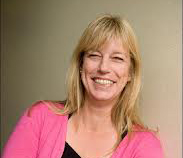Sometimes work conditions are too good
By Susannah Freymark
Sometimes work conditions are too good. The quiet tap tap of the keyboard. Words fall onto the page with technological speed. In between the flow of sentences I gaze across the green fields to the ocean line stretching across the sky.
It is raining and cold, a heater sits by the desk and I have my pink fluffy socks on. I’m not even tempted to walk on the beach in this weather.
Nothing to do but write. At eleven o’clock Jan will call us to the dining room for straight-from-the-oven macadamia muffins and hot coffee. This is the sort of deadline I like.
What an incentive — I try for another two hundred words before the muffin break. Andrew the peacock (a real, not metaphorical one) saunters by as if he has seen this all before. And he has.
I am one of four emerging writers selected for the annual Mentorship Program funded by the NSW Ministry of Arts and hosted by the Northern Rivers Writers Centre. We are here for a week at Coopers’ Shoot Guest House to work on our manuscripts.
Guided by the skilful and experienced author Marele Day, the ideal working conditions are created so we can write and not be concerned about anything else.
We discuss our writing practises on the first day. Watching a writer at work can be like watching paint dry, as Andrew would know.
There is little movement. For most of us.
My peers, I discover, like the quiet. Not to the extreme of Tim Winton who doesn’t even like to hear birds chirping when he works but they like an atmosphere of peaceful productivity.
I have a different approach involving the pounding beats of Rust Never Sleeps and later in the evening a few bourbons to oil the writing process.
After an hour tapping on the keyboard I have to get up, move around, read what I have written aloud to the wind, the sky, it doesn’t matter, just to hear the words come alive.
So with Neil Young playing on the lowest setting I can bear, I silently wave the bottle of Wild Turkey while I rearrange the words of my novel.
We are given a clear purpose for the week, to edit and rework the first ten pages of our manuscripts.
I hadn’t realised how intense and involved this was.
The writer must survey his work critically, as though he were a stranger to it. At the end of each revision, a manuscript may look… worked over, torn apart, pinned together, added to, deleted from, words changed and words changed back.
Eleanor Estes
I rearrange the order of my chapters using scraps of paper that are scattered across the room.
I have a new respect for anyone that manages to finish a book; it involves such tenacity to keep going over and over the same words.
Writers talk about spending an entire morning deciding whether to remove a comma from a sentence. It can be that detailed.
Sarah Armstrong attended the mentorship program two years ago, for her it was an affirmation that her writing was actually okay and worth pursuing. Her book, Salt Rain, was short listed for the Miles Franklin prize this year.
Back in my room I am confused about the changes I’ve made, do they improve the story or make it worse or I have I just changed the sentence back to the original words.
It’s like Groundhog Day. I know I have to get out, the commas are taunting me, change me change me, the perfect writer’s world is too much.
I need a change of scene so I head to the Bay. The trouble with skiving off is, just like in my school days someone always sees you.
There I am deep in thought selecting a shoe rack (two tier or three tier, this is a decision I can cope with, it doesn’t involve commas or adjectives) when someone I barely know asks why aren’t I at the writing retreat, they’d read about it in the Writers Centre Newsletter.
‘We’re allowed out,’ I say like a prisoner.
What I really want to do is to ask them questions;
Do you think I should end chapter one with a drowning? Will the readers empathise with the main character? How do I make the link on the 6th page connect with what happens on the 2nd? Should that comma stay or go?
I pay for the shoe rack and realise I shouldn’t be out in the wider community.
I am potentially a threat. I rush back to the Ideal Writer’s World.
The keys are clicking away and the smells of roasted pumpkin and frying fish give me the spur to write just a bit more before dinner.
I believe in miracles in every area except writing. Experience has shown me that there are no miracles in writing. The only thing that produces good writing is hard work.
Isaac Bashevis Singer
With or without the lure of a tasty meal, Jesse Blackadder worked hard on revising her book at last year’s mentorship program.She liked the chance to step out of life for a week and become immersed in writing.
‘The experience becomes deeper and more consistent,’ she said. ‘The world I’m creating on the page becomes more real and tangible, the characters start to seem like people. It is like a blood transfusion into the manuscript.’
Her manuscript has transformed into a book, After the Party, which was launched at the Byron Bay Writers’ Festival in 2005.
I am nowhere near planning a celebration as I continue to sort the commas and all the bits in between and piece together a story I feel compelled to write.
Sometimes work conditions are too good.
By Susannah Freymark, originally published in Here & Now magazine, 2005
Leave your comment about Sometimes work conditions are too good or share with your friends on Facebook

Leave a Reply